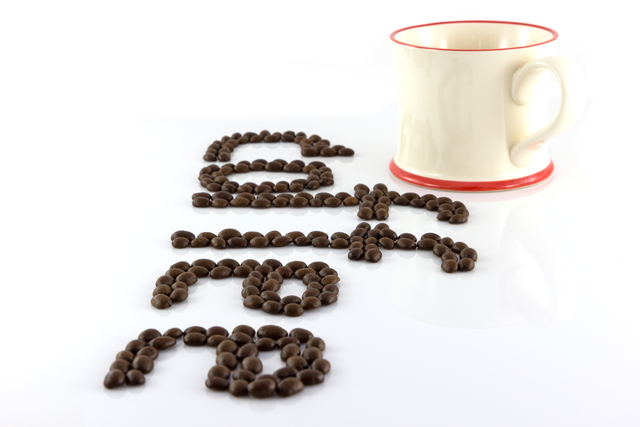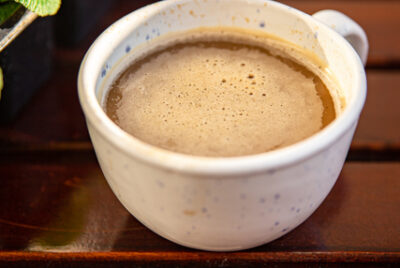Does Decaf Coffee Make You Poop?
Let me paint a picture for you. You’re a coffee lover who has just switched to decaf for health reasons, or perhaps to manage that over-caffeinated jittery feeling. However, you’re noticing that you still have to rush to the bathroom after your morning cup of decaf. Now you’re wondering, “Does decaf coffee make you poop?” As a fellow coffee enthusiast and advice giver, I’m here to discuss this amusing yet essential topic.
The Connection Between Coffee and Bowel Movements
Coffee and its relationship with our digestive system is a topic of immense interest to many, especially those of us who swear by our daily cup of joe. But what exactly happens when we consume coffee, and how does it affect our bowel movements?
Understanding the Coffee-Gut Connection
Let’s break it down. When you consume coffee, it travels through your stomach and into your intestines. In response to the compounds found in coffee, your gut ramps up gastric acid production and the secretions that aid in digestion. But, that’s not all.
The warm liquid, combined with the natural chemical compounds found in coffee, stimulates your gut in a way that can lead to an increase in peristalsis. This term, often thrown around in the medical world, refers to the rhythmic contractions and relaxations of the gut wall. This action propels the contents of the gut forward, assisting with digestion and eventually leading to a bowel movement.
This physiological reaction may explain why after having that morning cup of joe, some of us make a beeline for the bathroom.
Coffee as a Natural Laxative
Coffee’s reputation as a natural laxative comes primarily from its caffeine content. Caffeine, a natural stimulant, is thought to stimulate muscle contractions in the large intestine, similar to the way a large meal would. This action can promote bowel movements.
Moreover, the acidity of coffee might also play a role in its laxative effect. Some people may find that the acidity stimulates an increase in digestive activity, which, in turn, could lead to a faster transit time in the gut.
But what about decaf coffee? If the primary stimulant caffeine is removed, how does it impact our bowel movements? We’ll delve into that shortly. But before that, let me share my personal experience of how switching to decaf affected my digestion.
Personal Experience with Decaf Coffee and Digestion
I recall a time when I switched to decaf in the evenings, hoping to avoid interrupting my sleep cycle. However, I noticed an unexpected side effect – I was still experiencing bowel movements, similar to what I’d get from regular coffee. It seemed odd because I was under the impression that caffeine was the key player behind this reaction. This personal experience got me thinking and pushed me to delve into the scientific aspect.
Scientific Evidence on Decaf Coffee and Digestion
While my personal experience prompted a deeper dive into this topic, I also wanted to explore what scientific research had to say about decaf coffee and digestion. Here’s what I found.
Studies on Decaf Coffee and Bowel Movements
Numerous scientific studies have explored the effects of coffee on the digestive system. Some of these studies surprisingly point to decaf coffee having a similar, if not stronger, impact on bowel movements compared to its caffeinated counterpart.
One study published in the European Journal of Gastroenterology & Hepatology reported that both caffeinated and decaffeinated coffee seemed to induce a desire to defecate in some individuals within minutes of consumption. Interestingly, this response was observed to be stronger with decaffeinated coffee.
Another study in the journal Gut found that coffee promotes the release of gastrin, a hormone that stimulates gastric acid secretion and helps move the contents of the stomach into the small intestine. Both caffeinated and decaf coffee led to increased gastrin release.
Understanding the ‘Decaf Effect’
If the caffeine in coffee isn’t the sole perpetrator behind the ‘rush to the bathroom’ phenomenon, then what is it about decaf that can still trigger a bowel movement? It turns out, it’s not just about the caffeine.
Coffee, whether regular or decaffeinated, contains over a thousand compounds. Chlorogenic acids and N-alkanoyl-5-hydroxytryptamides (C5HTs), found in coffee, stimulate the production of stomach acid. Additionally, they also promote the release of cholecystokinin, a hormone associated with increased activity in the colon.
So, even though decaf coffee has most of its caffeine stripped away, it still retains these other compounds that can potentially affect digestion and, consequently, bowel movements.
These scientific revelations certainly shed light on the curious case of decaf coffee and its impact on our digestive system. However, it’s crucial to remember that everyone’s gut response to coffee can vary significantly based on their individual physiology and tolerance levels. In the following section, let’s discuss how you can enjoy decaf coffee while maintaining healthy digestion.
Decaf Coffee vs. Regular Coffee: A Digestion Comparison
Once I understood the science behind decaf coffee and bowel movements, I started comparing it to the effects of regular coffee.
The Role of Other Coffee Components
Caffeine Content
The most apparent difference between decaf and regular coffee is the caffeine content. Regular coffee, as you would expect, contains a significant amount of caffeine, while decaf has most of its caffeine removed—though it’s important to note that decaf does still contain a small amount of caffeine.
Caffeine can stimulate the central nervous system, increase gastric acid production, and speed up colonic transit time, leading to quicker bowel movements. While decaf coffee has far less caffeine, it doesn’t necessarily mean it will have less of an impact on your bowel movements, as we’ve learned from scientific studies.
Acid Levels
Both regular and decaf coffee can be quite acidic. This high acidity can increase stomach acid production, contributing to their reputation as digestive stimulants. For some people, especially those with conditions like acid reflux or sensitive stomachs, the high acidity can cause discomfort or exacerbate existing issues.
Other Compounds
Besides caffeine and acidity, both types of coffee also contain numerous other compounds, such as chlorogenic acids and N-alkanoyl-5-hydroxytryptamides (C5HTs). These compounds stimulate the production of stomach acid and promote the release of hormones that increase colon activity. As a result, they may contribute to the coffee’s overall impact on bowel movements.
Decaf and Regular Coffee: Which is Better for Digestion?
Coffee, be it decaf or regular, can be both a friend and a foe to our digestive system. While it can aid in digestion for some, for others, it might cause discomfort or urgency. So, which type of coffee is better for digestion?
Depends on Personal Tolerance
The answer is not straightforward, as it often boils down to personal tolerance and sensitivity. Some people can drink several cups of regular coffee without experiencing any digestive issues, while others might find themselves running to the bathroom after just one cup. Similarly, while decaf coffee might be a good alternative for those sensitive to caffeine, it can still lead to increased bowel movements due to the other compounds it contains.
Consider Your Health Conditions
If you have a pre-existing condition such as gastroesophageal reflux disease (GERD) or a peptic ulcer, you might want to choose decaf over regular coffee. The lower caffeine content can potentially be less irritating to your gut. However, given that both types are acidic and contain other compounds that can stimulate digestion, you might still need to monitor your intake and symptoms.
Listen to Your Body
At the end of the day, the best judge is your body. Paying attention to how your body responds to different types of coffee can help you choose the one that’s most comfortable for you. If either type leads to frequent or urgent bowel movements, consider reducing your intake, having coffee with food, or experimenting with different brewing methods to lower the acidity.
The Best Ways to Enjoy Decaf Coffee for Healthy Digestion
Whether you’re a fan of regular or decaf, it’s essential to enjoy your coffee in a way that agrees with your digestion. Here are my suggestions based on my own experience and learning:
Moderation is Key
Too much of anything can be a problem, and coffee is no exception. Moderate your coffee intake to avoid overstimulating your gut.
Pair with a Balanced Diet
Having a balanced diet can aid digestion. Enjoying your coffee with a meal, rather than on an empty stomach, can also be beneficial.
Listen to Your Body
Everyone’s body is different. Pay attention to how your body reacts to decaf and regular coffee, and adjust your consumption accordingly.
Does Decaf Coffee Make You Poop Conclusion
In conclusion, yes, for some people, decaf coffee can indeed make you poop. While it’s not a universal experience, many people, including myself, have noticed this effect. Understanding the multiple active compounds in coffee beyond just caffeine opens up a new perspective on how our favorite brew interacts with our bodies. This also applies to understanding how coffee can stain your teeth. Whether you enjoy regular or decaf, remember to listen to your body, balance with a healthy diet, and enjoy in moderation. Happy brewing!
Does Decaf Coffee Make You Poop FAQs
Does decaf coffee make everyone poop?
Not everyone. Each person’s body reacts differently to coffee. Some might experience a laxative effect with decaf, while others might not notice any difference.
How much decaf coffee would cause a laxative effect?
The amount varies for each individual. If you find that decaf coffee is causing unwanted digestive effects, consider reducing your intake and see if the symptoms improve.
Is the laxative effect of decaf harmful?
Not necessarily. However, if you experience discomfort or it affects your daily routine, it may be a good idea to consult with a healthcare professional.
Can I reduce the laxative effect of decaf coffee?
Drinking coffee with food, rather than on an empty stomach, and moderating your consumption can potentially reduce the laxative effect.
Can decaf coffee help with constipation?
It might. If decaf coffee stimulates your bowels, it may help with constipation. However, it’s essential to consult a healthcare professional for chronic or severe constipation.




